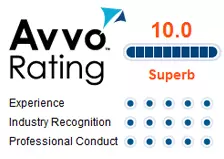A new law has been proposed in Michigan, 2010-HIB-6432, that would allow the use of a roadside saliva drug test. The law proposes to amend 3 sections of the Michigan motor vehicle code pertaining to the offense of OWI (operating while intoxicated), and also adds 1 new section. This new law is sure to increase the number of Michigan OUID/OWPD arrests.
As Michigan’s law currently stands, a driver suspected of driving under the influence of alcohol (DUI) may be requested to submit to a roadside or preliminary breath test. In order to seek such a test, a police officer need only have “reasonable cause” to believe the Michigan driver is OWI.
The new law modifies existing law by changing the words “preliminary breath test” to “preliminary chemical tests to determine if the driver was DUI or operating “under the influence.” The following paragraphs discuss the amendments and addition in brief detail.
Section 43a – Added
This section defines “preliminary chemical analysis.” It is mainly broken down into two main processes that meet the definition. First, being the “preliminary chemical breath test.” Second being a “preliminary chemical oral fluids analysis.” The breath test is for determining the presence of alcohol, and the fluids analysis is for detecting the presence of controlled substances.
Regarding the fluids analysis, there are two subdivisions that define the process (verbatim):
(i) “Immunochemical Assay” means a scientific technique that uses specific binding between an antigen and its homologous antibody to identify and quantify a substance in a sample.
(ii) “Preliminary Chemical Oral Fluids Analysis” means the on-site taking and analysis by immunochemical assay of the oral fluids of a person for the purpose of detecting the presence of controlled substances within the person’s body.
Also, the verbiage is different for the breath and fluids analysis. The breath analysis section states “to determine the presence of alcohol in the person’s body.” This mentions nothing about amount. The fluids analysis section (above ii), uses the term “detecting” instead of “determine.”
Section 319d – Amended
The only changes to this section are to eliminate the term “breath” in “preliminary chemical breath analysis” so that it becomes “preliminary chemical analysis,” and is therefore applicable to either the breath or fluids tests.
Section 320a – Amended
Same as above eliminates the term “breath” so that it can now be applicable to the breath and fluids test.
Section 625a – Amended
Same as above, with 2 other changes. The term “or a controlled substance” has been added, ostensibly to now allow the police officer to require a person to submit to a chemical analysis for a controlled substance, subject to the same prior rules for alcohol. Additionally, the law creates a subsection for the inadmissibility of the fluids test. The subsection reads (verbatim):
(c) The results of a preliminary chemical oral fluids analysis are inadmissible as evidence for purposes other than the purposes listed under subdivision (B)(i) only if the results of the preliminary chemical oral fluids test are confirmed by liquid chromatography with mass spectrometry x 2 in a laboratory approved by the department of state police.
***Subdivision (B)(i) is for the purpose of assisting the court or hearing officer in determining a challenge to the validity of an arrest.
Conclusion
Michigan is preparing for a push to arrest more people for driving under the influence of drugs. This proposed law will allow police officers to detect the possible presence of drugs at the roadside. There are many problems with the proposed law, one of which is the potential for false positives and therefore false arrest. Another problem is defining “reasonable cause” in the context of drugs. With alcohol it is easy to find reasonable cause based on things like odor, slurred speech, balance and cognition problems, etc. With drugs it’s a whole different ballgame.
It also appears that the bill proposes to make the results of the roadside saliva test admissible if they are confirmed by a more sophisticated liquid chromatography test. This is much different that a roadside breath test which is rarely admissible even if it is later confirmed.
Any time a new law such as this is passed, there is a period of time during which defenses will have the most vitality. The Barone Defense Firm looks forward to being on the forefront of successfully raising such defenses on behalf of its clients.
Get a FREE confidential CASE EVALUATION on your Michigan OWI/OWVI/DUI by calling (248) 306-9159, or filling out this consultation request form. Call now, there’s no obligation!









